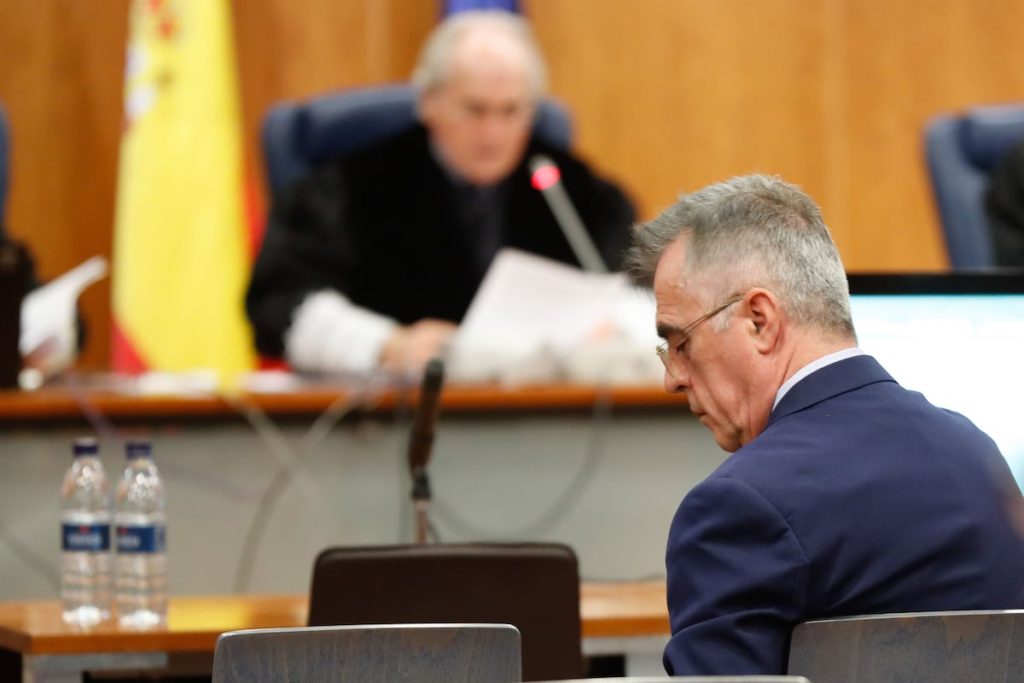After almost two decades, the Astapa case, the last major instance of alleged urban corruption on the Costa del Sol, is finally set to come to a verdict. On Monday, 18 years after the start of the police operation, the 37 people accused in the trial were able to exercise their right to a final statement. Only about a dozen spoke, including the former mayor of Estepona, Antonio Barrientos, who emphasized the difficult time he has endured since his arrest in 2008. The testimonies presented a dramatic and emotional narrative filled with psychological crises, depression, anxiety, illnesses, and family and professional problems. The common thread among them is the feeling of being treated as guilty rather than presumed innocent, according to their lawyer, José Carlos Aguilera. The verdict will be announced on November 8th.
37 people had the opportunity to speak as defendants, but at one point, Astapa had 109 people accused and a vast amount of documentation: 128 main volumes with 351,114 pages, along with 646 pieces of documentation. The police investigation began in 2006 to uncover an alleged case of widespread urban corruption in the Estepona City Council after a complaint from councilor David Valadez, who would later become mayor. The investigation aimed to uncover a scheme that undervalued urban agreements to benefit various political figures. The prosecution claimed there was a slush fund in the council with contributions from developers with real estate interests. The main accused was Barrientos, initially facing 10 years and nine months in prison for four crimes, with prison sentences also sought for councilors, businessmen, lawyers, and officials.
Over the years, the case began to lose momentum. Issues with information technology and staffing, as highlighted by the Andalusian High Court (TSJA), delayed administrative procedures. The investigation concluded in May 2017, and by July 2018, the Anticorruption Prosecutor’s Office only accused 51 people of embezzlement, bribery, abuse of power, falsification, fraud, and influence peddling. The trial, which began in January 2023, saw further reductions in arguments after the annulment of wiretaps that originated the case, linked to retired commissioner José Manuel Villarejo, as Barrientos had previously claimed. The judicial process was divided into ten thematic blocks to facilitate the work of all parties, covering issues such as irregularities in urban agreements, bank deposits in Switzerland and Andorra, commission payments, illegal party financing, and alleged enrichment of the accused.
After 15 months of trial, the prosecutor, Valentín Bueno, further weakened the case last June. He dropped charges against nine people and closed the case for two others. In the final indictment, he reduced the requested sentences for all 37 remaining accused, including the Estepona mayor, whose sentence was reduced from ten to two years. Barrientos reflected on the 16 years of hardship he endured, expressing satisfaction that the ordeal had finally ended. Lawyer José Carlos Aguilera highlighted the difficulties faced by the accused since the start of the police investigation, including seizures of pensions, assets, or bank deposits, family problems, and ruined businesses. He argued that a state should not take 18 years to prosecute events that could only be punishable for a maximum of ten years. The case is nearing a verdict, pending the appearance of one final accused to exercise their right to a final statement or waive it, with the judgment expected on November 8th.














